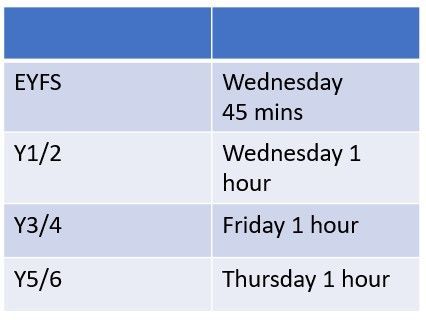
Religious Education
'We can do all things through Christ who strengthens me' - Philippians 4:13
Our revised Religious Education (RE) curriculum is structured around three distinct types of knowledge to ensure a rich and meaningful experience for all pupils:
Substantive: This is the content we want children to know and remember such as key beliefs, teachings, practices and viewpoints across a range of religions.
Disciplinary: This is how we introduce our pupils to the ways in which we engage with religious content, both critically and thoughtfully. We introduce pupils to how scholars and practitioners explore religious and philosophical questions.
Personal: This is how we help children use their learning to critically analyse their own world views. We encourage pupils to go beyond stating their views and explain and justify them by exploring:
Why do I believe what I believe?
Why do I value what I value?
Why do I live the way I do?
How does my context influence the way I see the world?
Throughout our RE curriculum and wider curriculum, we aim to deepen pupil’s awareness of their own worldviews and those of others and enable their critical thinking skills. RE is taught weekly for one hour, in addition to termly RE and Spiritual enrichment days and external work with Christian Options in Peterborough School (CROPs).
Our curriculum explores religious content through these 5 key concepts:
Context
Identity and Belonging
Meaning and Purpose
Power and Authority
Values and Morality
Throughout our curriculum, pupils’ are exposed to religious scriptures from all faiths, real-life examples of the content they are learning through videos, visitors, images. Worldviews are at the forefront of staffs mind and these are integrated across the curriculum where possible.
Spirituality
Spirituality is on a journey at our school. We interweave both planned and unplanned moments of spirituality across our whole curriculum. Our pupils are learning about what spirituality is and how they can be reflective as spiritual learners and their relationships and connections they have with themselves, others, the wider world and any divine being.
Our spirituality policy lays out our shared working definition of spirituality and it illustrates how we use relational hearts as our shared spiritual language across school.
The Right of Withdrawal from RE
Holme C of E Primary school is an inclusive community but recognises that parents have the legal right to withdraw their children from Religious Education on the grounds of conscience. However, the right of withdrawal does not extend to other areas of the curriculum when, as may happen on occasion, spontaneous questions on religious matters are raised by pupils or there are issues related to religion that arise in other subjects such as history or citizenship. We would ask any parent considering this to contact Mrs Ferrara or Mrs King to discuss any concerns or anxieties about the policy, provision and practice of religious education.
Our RE Timetable

